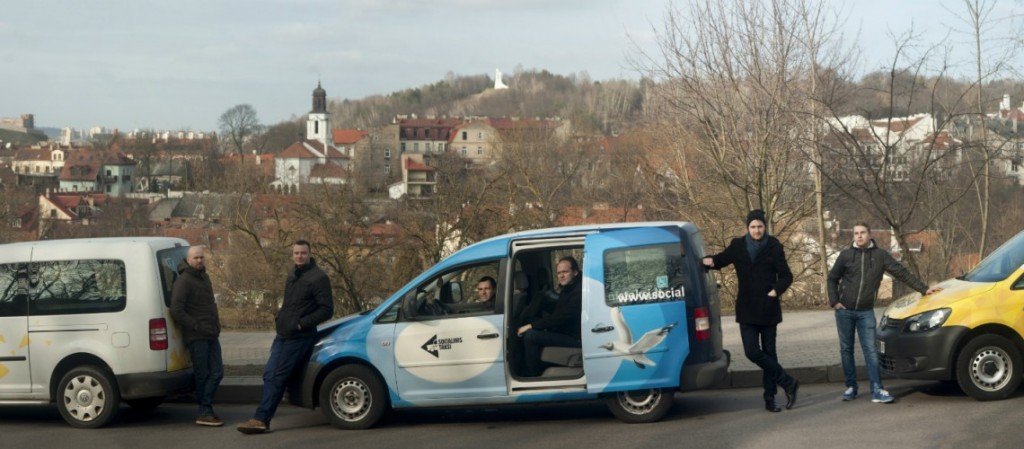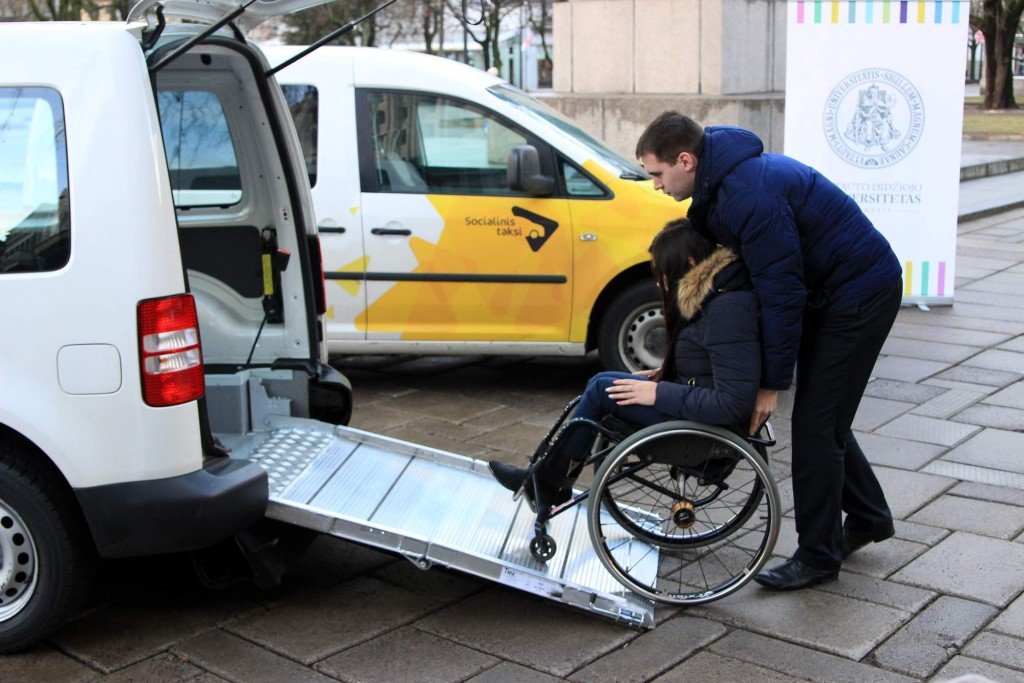Social enterprise Socialinis Taksi (Social Taxi) is providing subsidised taxi services to the disabled people in 3 largest Lithuanian cities. Part of their services are being paid by the municipality and the rest by the customers.
It is a very important service for the people with limited abilities to move around the city. People who have physical disabilities and live in Vilnius or Klaipėda, major cities in Lithuania, are able to call on the online-powered cab service, which helps them get around through increased assistance and accessibility.
To make matters easier for Social Taxi’s riders, the service operates with unbelievably low fares that are much lower than the prices for Lithuania’s regular taxis. A one-way ride on Social Taxi typically costs 1 EUR. Regular taxi prices are much higher: starting at 0,50 EUR, with an additional 0,70 EUR for every kilometer driven. The affordability helps, as disabled people can have relatively low incomes. But scaling up such a project doesn’t come cheap or easy.
Despite the fact that the project required a huge investment, its founder does not see this cost as a problem. “If more initiatives emerged that solved concrete problems, then there would be enough money. There is so much improperly used money in Lithuania,” Arunas Survila, CEO of the company says. That opinion is widely shared by Lithuania’s politicians and public. Even the country’s president, Dalia Grybauskaitė, remarked in her annual speech on the state of the nation, “As we fought the downturn and worked to save our country from bankruptcy, we saw very clearly that the shortage of funds is not Lithuania’s biggest problem. Lithuania’s biggest problem is corrupt interest groups and irresponsible overspending.”
Fortunately, local municipalities, private companies and nongovernmental organizations have helped Social Taxi survive the money shortage and put it in a position to provide inexpensive service.
But with a clear eye on long-term sustainability, Survila plans to steer away from a complete reliance on outsider funds. “In the future, we want to cover at least 50 percent of our costs by Social Taxi revenues, because we cannot be assured that we will be supported by the government.” Government officeholders in Lithuania have one term every four years.
As it stands, many social enterprises in Lithuania go bankrupt because of a lack of investment and support from both private and governmental institutions. Many people do not launch social enterprises simply because they do not expect them to be profitable without outside support. There are simply not enough NGOs and private companies to prop up social businesses. And, even when they do receive financial support, social enterprises could be better helped with added access to advertising and investors.
More information is available here: http://socialinistaksi.lt/















Leave A Comment